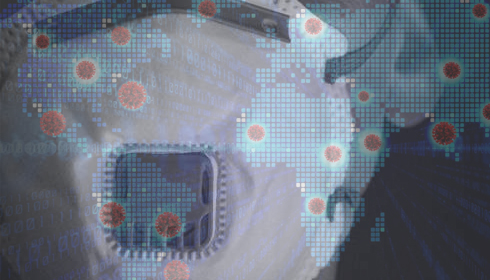
Breakthrough Study Demonstrates Ability of Data Analysis of Virus Genomes in Predicting Future Pandemics
A groundbreaking study published in Nature Communications reveals promising results from a new data-driven method, RecombinHunt, which could revolutionise the prediction and management of future pandemics. RecombinHunt, developed by the Politecnico di Milano and the University of Milan's Department of Electronics, Information, and Bioengineering, identifies recombinant SARS-CoV-2 genomes with high accuracy and computational efficiency.
Recombination, where two or more viral genomes combine to form a new genome, is a crucial mechanism for virus evolution and adaptation. Various methods emerged during the COVID-19 pandemic to detect these recombinant genomes. However, none have matched the precision of expert manual analyses until now.
RecombinHunt not only demonstrates high specificity and sensitivity, but it also outperforms all previously developed methods. It faithfully confirms manual expert analyses, establishing itself as a reliable tool for detecting recombinant viral geAs part of the PRIN PNRR 2022 SENSIBLE project (Small-data Early Warning System for Virus Pathogens in Public Health), this method was created. It has also been used successfully to identify recombinant viral genomes from the recent monkeypox epidemic. demic. This suggests that RecombinHunt’s approach is robust and applicable to any epidemic or pandemic virus, representing a significant advancement in combating future pandemics.
Prof. Stefano Ceri highlighted the global collaboration involved in the research, stating, "The research was possible thanks to the extraordinary contribution of laboratories from all over the world, which made more than 15 million viral sequences available to the international community." Dr. Anna Bernasconi, SENSIBLE project leader, emphasised the project’s goal, saying, "Our goal is to build warning tools to anticipate and combat new viral epidemics and pandemics."
"The study demonstrates how the development of innovative and efficient computational methods allows us to more accurately and rigorously appreciate the evolution of pathogens and any implications for human health," added Prof. Matteo Chiara, professor of molecular biology at the University of Milan and co-leader of the SENSIBLE project.
Dr. Tommaso Alfonsi, who recently received a doctorate "cum laude" in information engineering, made a significant contribution to the study by presenting this and other timely research.
The findings from this study underscore the importance of using advanced computational methods to predict and manage future pandemics. RecombinHunt's ability to accurately identify recombinant viral genomes paves the way for early warning systems, potentially preventing widespread outbreaks and saving countless lives. As global health continues to face new viral threats, integrating such advanced technologies will be critical to safeguarding public health.